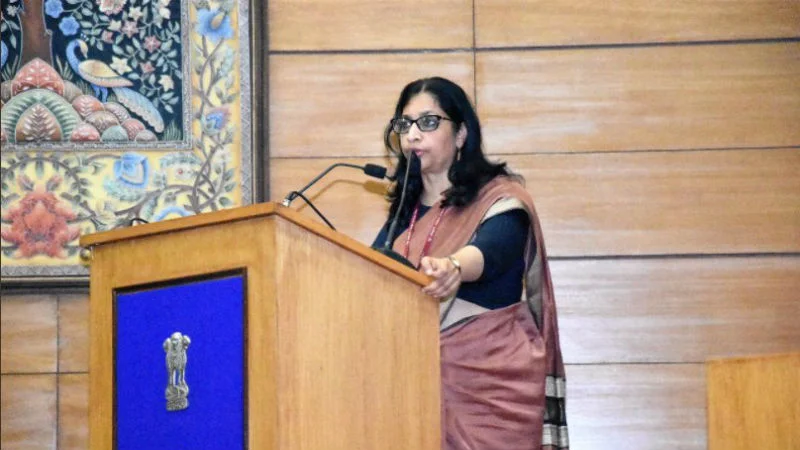The decline in revenue and levy collections from the Indian telecom industry in 2017 is the only temporary phenomenon caused largely by free voice tariff offers, Aruna Sundararajan, Secretary, Department of Telecommunications told today. “I believe that this is an interim phenomenon because suddenly voice has been made practically free at a time when the voice was driving the market, which is why ARPUs (average revenue per user) have fallen so much,” telecom secretary Sundararajan said to ET Sundararajan comments follow the Telecom Regulatory Authority of India’s just-released quarterly report, “The Indian Telecom Services Performance Indicators” for the period from October to December 2017.

The report indicated the loss of revenue for the Indian telecom industry, following the launch of free voice calling service by almost all telcos in attempt to match newcomer Reliance Jio’s free voice and cheap data offerings. The intense competition in the industry has hurt revenue and profitability for telecom operators and in return also caused lower revenue generation for the government.
Data from Trai revealed that the gross revenue in the sector shrank by 7.95% while adjusted gross revenue (AGR) fell by 7.52% in the quarter that ended December 2017, in comparison to the previous quarter.
Also, the license fee paid to the government declined from Rs 3249 crore from the quarter earlier to Rs 3014 crores for the third quarter of FY 2017-2018. Even the spectrum charges paid to the government saw a decline as well. "The license fee is eight percent of the AGR, and the spectrum usage charge is five percent of the same," said the report.
But Sundararajan asserted that revival was around the corner. “With data consumption picking up, it (industry) will stabilise, and we will certainly see a normalisation of tariffs and revenue,” she said, adding that consolidation will also help the industry.
However, older telecom players disagree saying it might take other 3-4 quarters before the improvement in the financial health of the sector.
“We don’t see a let up in pressure on revenue… we expect a continuous decline in revenue over the coming 3-4 quarters due to competitive issues and consolidation,” said Rajan Mathews, director general of Cellular Operators Association of India (COAI), the industry representing Bharti Airtel, Vodafone and Idea Cellular said.
The not-so-competitive Indian telecom market suddenly became hyper-competitive, right after the entrance of Reliance Jio to the market. Now telcos are showering voice and data plans to the consumers in order to stay ahead of Reliance Jio and to retain the subscriber base as well.















